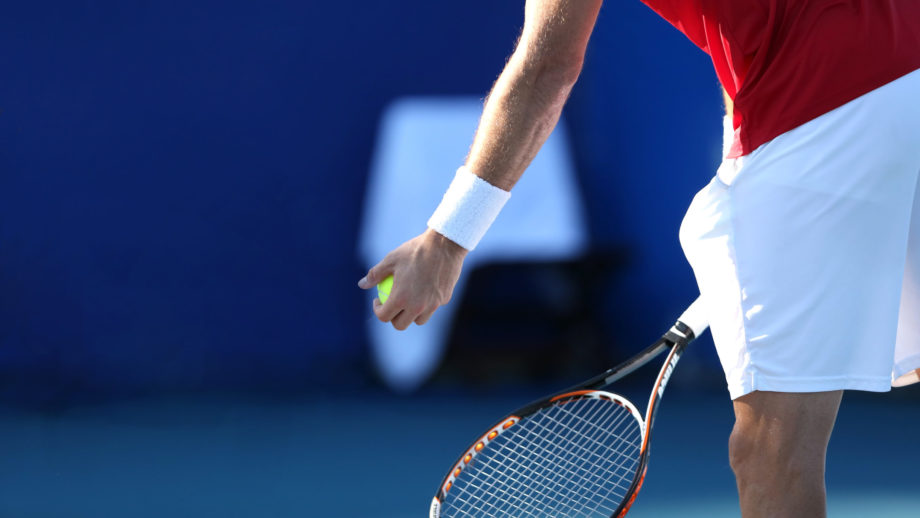
Tim O’Connor BL
The defending champion, Novak Djokovic, would normally be accelerating through the knock-out stages of the Australian Tennis Open.
Instead, he is now in Serbia. To get to this point has been anything but quiet or simple, but fascinating in what it shows about the intersection of sports law and immigration law. Could it happen here?
Tim O’Connor BL is a member of the Immigration, Asylum and Citizenship Bar Association and the Sports Law Bar Association of The Bar of Ireland.
Centre Court: Australia
The background is that Australia has, even pre-Covid, a famous – arguably infamous – border régime. The application of this to areas such as asylum have been the subject of considerable comment up and down the years. Novak Djokovic’s Covid difficulties have also been a matter of public record over the last two years. Initially, Djokovic was granted an Australian visa and was also granted a permission to enter Australia. Under Australian law, either may be revoked by the relevant Minister. Initially, it was revoked; this revocation was challenged and then quashed on consent. The Australian Minister then revoked the visa under what is called in Australia a “God power”, which revocation Djokovic challenged in turn. This was heard before a three-judge bench of the Federal Court of Australia, and the decision to revoke upheld. Consequently, Djokovic was removed from Australia, and may not return, without Ministerial leave, for three years. The full judgment of the Court[1] was delivered on Thursday the 20th and can be read here. For an excellent overview of the decision from an Australian perspective, Maria O’Sullivan of Monash University has written for the Verfassungsblog here.
The question then is: what would happen in similar circumstances in Ireland? And what implications does this have for sport?
The Irish & European context
First, the comparative complexities; Ireland is part of the EU, with all that implies for EU citizens, but not part of Schengen. We have an open, unsealable, Border with a non-EU third country, the UK with which we have a Common Travel Area for the benefit of Irish and UK citizens. Thus, in any discussion of movement into and out of Ireland, the answer must start with that favourite phrase of lawyers: it’s not that simple.
Djokovic is a Serbian citizen, and, as such, would require a visa to enter Ireland. He is resident in Monte Carlo, a non-Schengen non-EU state that is treated de facto as being an associate Schengen state, in that to enter it one must pass through a Schengen state. However, Schengen visas are not valid for Ireland and so Djokovic would require a visa. There is one exception; if he were coming from the UK – for example, after Wimbledon – he would be exempt as a United Kingdom visitor under Schedule 3 of the Immigration Act (Visas) Order 2014[2] if he were coming for a visit lasting the shorter of 90 days or the remainder of his permission to be in the UK. A visa is, strictly, just a permission to land in the State[3]; a permission is needed to enter and remain in the State .[4] However, the Minister may, under s. 4 of the Immigration Act 1999, an exclusion order in relation of any non-national “if he or she considers it necessary in the interest of national security or public policy”. Any person who has been refused leave to land in the State can also be the subject of a deportation order under s. 3 of the Immigration Act 1999[5] as may any person who, in the Minister’s opinion, has breached a condition of landing in, entry into or remaining in the State[6], or whose deportation would be in the common good.[7]
So how is this different to Djokovic’s case?
The most notable contrast is in the way in which power can be exercised. It is a remarkable thing to those of us used to a system of strongly-embedded Constitutional rights that Australia does not have a comparable legally enforceable, system of human rights above and beyond statutes. The power of the Australian Immigration Minister to cancel a visa is one of what are referred to as “God powers” – that is, powers which the Minister may exercise even outside the boundaries of natural (or, to us, natural and Constitutional) justice. Whereas the supervisory jurisdiction of the Courts would import the basic rules of natural justice and fair procedure even into sports disciplinary hearings under a private contract[8], and In Re Haughey is central in the exercise of any executive function, they do not constitute a ground of challenge for these ministerial powers in Australia. The only challenge is on pure grounds of reasonableness and rationality.
By contrast, the Supreme Court has held, even in stating that immigration to the State was a “gift” rather than a “right”[9], that consideration of immigration permission must be subject to the State’s duties as to the rights and obligations contained in the ECHR Act 2003 and the Constitution. Any deportation order may only be made after a process where the person in respect of whom it is proposed to make such an Order has a full right to make representations, and where all decision-making is again subject to the State’s rights-based duties and open to challenge on those grounds.
So sharp is the contrast, and so instinctive the response, “But that can’t be right” from lawyers coming from Irish legal culture that it highlights just how ingrained in that Irish legal culture is the concept that all power is subject to legal scrutiny against enforceable rights. Indeed, it goes further; although the Australian Minister gave reasons, which reasons the Federal Court examined for rationality, the Court made it clear the Minister did not have to.
“Considerable debate took place as to how to approach the Minister’s statement of reasons in this case. We do not consider that the resolution of that debate is necessary to reach the views we have. The Minister was not obliged to give reasons but he did so. They were evidently carefully drafted. The Court has no doubt that in respect of a matter of high public profile, care and consideration was given to the formulation of the reasons in the four days in which the Minister took to consider the matter and finalise and deliver the reasons. Nevertheless, some weight is to be given to the fact that there was no obligation to give the reasons.”[10] [Emphasis added]
Thus – and remarkably to Irish legal eyes – that the Minister was not obliged to give reasons was to be given weight against challenging the rationality of the decision.
By contrast, here, the Mallak[11]duty to give reasons for any exercise of executive power – even if not “discursive reasons”[12]– is so settled that it is taken as read[13]. To some extent, then, the way in which most is to be gained in examining the Djokovic decision is that one can say, with surprise and certainty: it couldn’t happen like that here. While we may not realise it, any more than a fish realises that the water it swims in is wet, ours is a system by now so saturated and steeped in rights-based supervision of executive power that such a dry exercise of executive power, in any area, is effectively impossible.
A summer of sport ahead – implications?
What will be of interest in the future is the European context. The focus of much of world sport shifts in summer to Europe; the finals of European football and rugby, the grand tours of cycling, the French Open and Wimbledon. All of these take place in a context where systems do have some form of recourse to some form of rights-based curtailment of the executive, with the likelihood of some challenges. Indeed, there has been considerable talk of late of challenges to the application of the rules on cancellation of rugby matches under the Covid regulations agreed in European rugby participation agreement – albeit with notably more heat than light or, indeed, result thus far.
More acutely for Djokovic, who owns a house in Spain, the Spanish Prime Minister has agreed with the Australian approach. France has just introduced requirements that any person playing professional sport in France will have to be vaccinated or face quarantine; events like the 6 Nations, Tour de France and Rolland Garros will obviously be affected. Clearly this puts Djokovic on the spot, especially given the highly-dirigiste structure of French sports law; however, it also does so in the context of systems with higher levels of justiciable rights of which he, or others, might try to avail.
It remains to be seen whether he will; however, we can be reasonably certain someone will try to, and watching lawyers will get to enjoy another fine series of rallies over several sets.
Discover our Specialist Bars

The Immigration, Asylum and Citizenship Bar Association (IACBA) is an association of barristers who are members of The Bar of Ireland specialising in immigration (including EU free movement of persons), asylum and citizenship law, in addition to related areas such as employment permits, family reunification and trafficking in human persons. Their aim is to provide relevant continuing professional development seminars, information and public events to better inform barristers and the wider public of these areas of law.

The Sports Law Bar Association of Ireland is an all-Ireland association of barristers with specialist sports law knowledge and practices. It aims to increase awareness of sports law and support barristers in providing the most up-to-date advice to sports law clients.
The views expressed above are the author’s own and do not reflect the views of The Bar of Ireland.
References
[1] Djokovic v Minister for Immigration, Citizenship, Migrant Services and Multicultural Affairs [2022] FCAFC 3; Allsop CJ, Besanko and O’Callaghan JJ. (hereafter referred to as “Djokovic”).
[2]Immigration Act 2004 (Visas) Order, SI 473 of 2014, Regulation 3 (d) and Schedule 3.
[3]Immigration Act 2003, s. 1.
[4]Immigration Act 2004, s.4. Cf. Iatan & Ors. v The Commissioner of An Garda Siochana & Ors. [2006] IEHC 30
[5]Immigration Act 1999, s. 3 (2) (g).
[6]Immigration Act 1999, s. 3) (2) (h).
[7]Immigration Act 1999, s. 3 (2) (i).
[8]See eg. O’Connor, Rugby Discipline and the Courts: Going Through the Phases? (2013) 18 Bar Review (4) 75.
[9]Bode (A Minor) -v- Minister for Justice, Equality & Law Reform & Ors. [2007] IESC 62
[10]Djokovic at 103.
[11]Mallak v Minister for Justice Equality & Law Reform [2012] IESC 59; Connelly v. An Bord Pleanala [2018] IESC 31
[12]Rawson v. Minister for Defence [2012] IESC 26 at 6.9. Cf YY v. Minister for Justice [2017] IESC 61 at 60, per O’Donnell J. (as was): “I consider that a court should be astute to avoid the type of over-refined scrutiny which seeks to hold civil servants preparing decisions to the more exacting standards sometimes, although not always achieved by judgements of the Superior Courts. All that it necessary is that a party, and in due course a reviewing court can genuinely understand the reasoning process.”
[13]To the point where, in the area and asylum and immigration it is arguable that it can occasionally be taken as too much for granted. See eg. Burns J. in SKS v. IPAT [2020] IEHC 560 at 21: “The duty to give reasons is so well established that perhaps an engagement with the essence of the duty is sometimes overlooked.”
